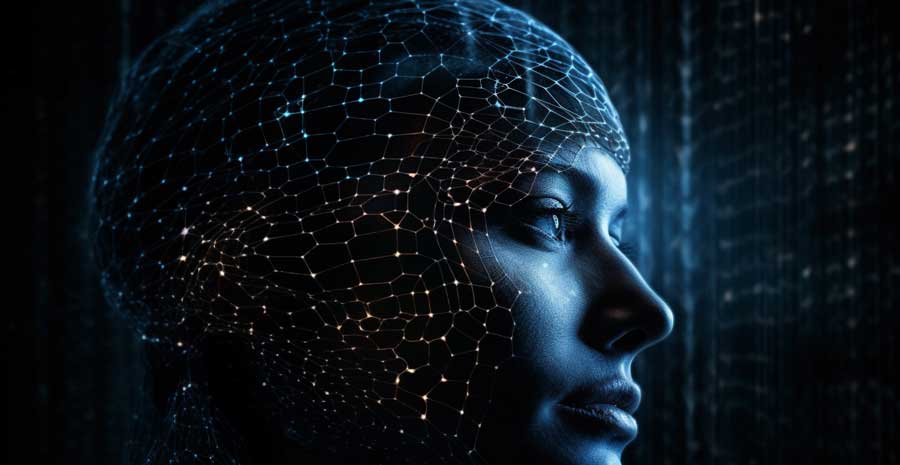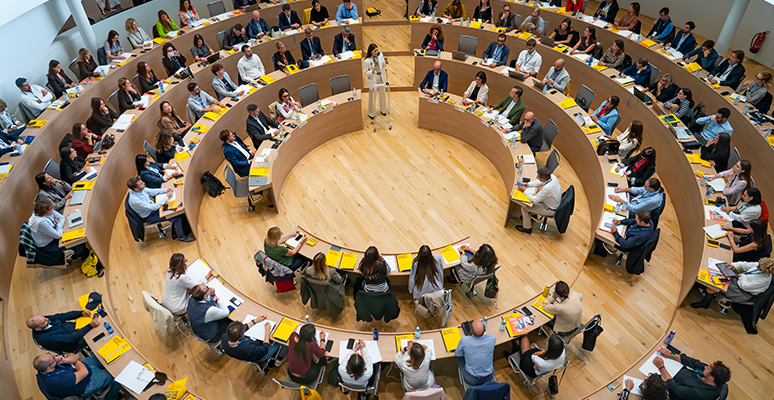
- Start date
- Duration
- Format
- Language
- 1 Dec 2025
- 3 days
- Class
- English
A journey through the digital revolution to learn how to capitalize on these enhancing technologies to gain competitive advantage in existing and new markets.
On the occasion of its tenth anniversary, the DEVO Lab at SDA Bocconi School of Management hosted the 2025 Annual Event titled “Towards the Post-AI Era.” The event gathered academics, economists, and managers to discuss how artificial intelligence is evolving from a frontier technology into a true enabling infrastructure for organizations.
In his opening remarks, Stefano Caselli, Dean of SDA Bocconi, emphasized that the mission of DEVO Lab is to “investigate what lies beyond technological hype: the phenomena, organizational models, and behaviors that define the real impact of digital transformation on companies.”
Gianluigi Castelli, Director of DEVO Lab, recalled the lab’s ten years of activity: with over 40 member companies, 35 research initiatives, 12 editions of the HIT Radar, and more than 60 think tank sessions, DEVO Lab’s work stands as a testament to the School’s continuous commitment to understanding and anticipating digital transformations. With the same approach, Castelli introduced the theme of the 2025 Annual Event: “Artificial intelligence is not an end goal, but a technological opportunity on which to build value and competitiveness. The role of business and research leaders is to govern its evolution.”
This point was fully shared by Luigi Speranza, Chief Economist at BNP Paribas, who identified AI as one of the three major transformative forces shaping the global economy, alongside climate change and demographic dynamics. The context in which AI is taking hold, he noted, is one of growing geopolitical multipolarity and deep economic uncertainty, where – as Speranza highlighted – “fiscal policy has regained center stage, and resilience has become the new compass of development.” According to the economist, the pace of technological adoption is unprecedented: “What once took decades during the Industrial Revolution now happens in a matter of months.” However, Speranza urged caution: while AI will bring disinflationary benefits, its impact will not be uniform. Some sectors – such as software, finance, and services – will be the first to benefit from increased productivity, while others (energy, transportation, consumer goods) will face cost and employment pressures. His conclusion was both realistic and optimistic: history shows that new technologies do not destroy jobs but transform them. Yet, the current speed of adoption compels policymakers to anticipate imbalances and invest in digital skills, infrastructure, and human capital.
The call for a mature AI policy was the focal point of the address by Riccardo Zecchina, theoretical physicist and Professor of Machine Learning at the Department of Computer Science of Bocconi University: “Europe must invest decisively in both public and private AI research. We need a CERN for AI capable of bringing together the continent’s best scientific and industrial expertise.”
Zecchina’s contribution offered a compelling synthesis of scientific rigor and long-term vision. Drawing an analogy with Newcomen’s 1712 steam engine – a symbol of minimal efficiency and untapped potential – he illustrated how today’s AI stands in a similar phase: powerful, yet far from the theoretical limits of artificial general intelligence (AGI). Though still distant, current research paths outline two possible routes toward AGI. Phenomena such as Chain of Thought reasoning and World Models, Zecchina argued, mark a new paradigm: “Systems no longer merely react; they simulate the world, learning through prediction.” And yet, he warned, from an efficiency standpoint the gap with natural intelligence remains enormous: the human brain’s energy efficiency is millions of times higher than that of the most advanced neural networks.
The issue of energy efficiency was further explored during the roundtable “AI Behind the Scenes,” moderated by Gianluca Salviotti with Carlo Vaiti (CTO of HPE) and Ramana Kompella (Head of Research at Cisco). From enhanced GPUs to AI distributed between cloud and edge environments, and from security to sustainability challenges, the speakers outlined a future in which AI infrastructures will be “not only more powerful but, in turn, more intelligent.”
Severino Meregalli, Scientific Director of DEVO Lab, summarized the day’s discussions by reiterating the need to look beyond technology. “There will be no product without AI,” he stated, “but true value will lie in human insight: in the ability to interpret, decide, and imagine.” The risk, he added, is one of “intellectual obesity” – an excess of information without synthesis – which can be countered only through critical education.
According to DEVO Lab, the Post-AI Era is thus a stage in which foundational knowledge becomes a commodity, and the true differentiator will be the quality of thought. The final quotation – “Think smarter in a world that already does” – encapsulated the spirit of the event: learning to think better in a world that already thinks.
SDA Bocconi School of Management

A journey through the digital revolution to learn how to capitalize on these enhancing technologies to gain competitive advantage in existing and new markets.

Fornire gli strumenti per (ri)disegnare la roadmap di adozione e sviluppo dell’AI in azienda bilanciando strategia, elementi tecnologici, organizzativi e di contesto.

At the end of the program you will learn how to use key data and metrics, analyzing them with appropriate models and tools.

